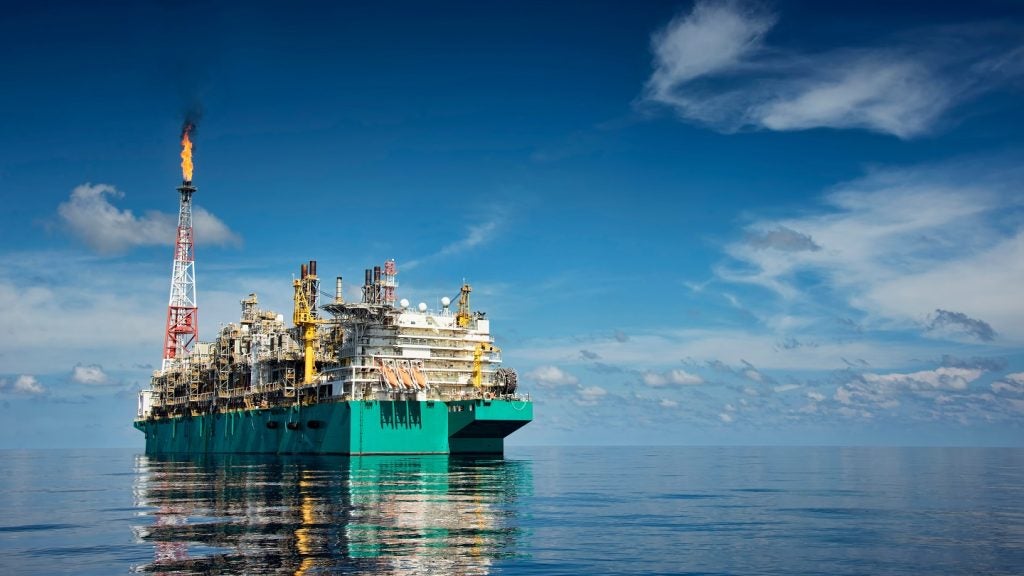
On 16 April, Royal Dutch Shell shared more details on its plan to reach net-zero greenhouse gas emissions by 2050. The green agenda is still progressing, and some say the coronavirus pandemic is the perfect time to forge environmental policies. Offshore Technology asks: Will the oil and gas industry emerge from the Covid-19 downturn as a more environmentally-sound industry?
In its announcement, Shell explained that it was only counting emissions from its activities and those from products it buys, known as Scope One and Two emissions, towards its net-zero goal.
However, it acknowledged the majority of the emissions it is responsible for are categorised as Scope Three, meaning the emissions from the products it sells. Other companies have said they will account for these via carbon offsetting, but Shell said it will work with consumers to “identify and enable decarbonisation pathways for each sector”.
Including these emissions and carbon offsetting, the company said it will reduce the greenhouse gas emissions it is responsible for in producing its energy products by 65% by 2050, and 30% by 2035. Shell emphasised it would be catering to a larger number of people due to population growth by 2050, so actual emissions would be half of today’s levels.
Continued push for Paris Agreement
CEO Ben van Beurden has repeatedly spoken about his approval for the Paris Agreement on Climate Change. However, this marks the first time his company has made tangible targets.
Announcing Shell’s goals, he said: “With the Covid-19 pandemic having a serious impact on people’s health and our economies, these are extraordinary times.
How well do you really know your competitors?
Access the most comprehensive Company Profiles on the market, powered by GlobalData. Save hours of research. Gain competitive edge.

Thank you!
Your download email will arrive shortly
Not ready to buy yet? Download a free sample
We are confident about the unique quality of our Company Profiles. However, we want you to make the most beneficial decision for your business, so we offer a free sample that you can download by submitting the below form
By GlobalData“Yet even at this time of immediate challenge, we must also maintain the focus on the long term. Society’s expectations have shifted quickly in the debate around climate change. Shell now needs to go further with our own ambitions, which is why we aim to be a net-zero emissions energy business by 2050 or sooner. Society, and our customers, expect nothing less.”
Nevertheless, campaign groups have said the targets will not align the company with the Paris Agreement. Climate-focused investor group Follow This founder Mark van Baal said Shell executives were still advising shareholders to vote against its resolution to align Shell with the Paris Agreement. He said: “While Shell repeatedly claims its ambition is to support Paris, management consistently refuses to adopt the concrete emissions targets needed to reach the Paris goal of well-below 2°C.”
Throughout the Covid-19 downturn, the European Union has pushed on with its Green Deal, a plan to decarbonise its members’ economies. The European Commission says it will remove the link between economic growth and resource use, halve net-zero emissions by 2050, and move the whole of the Union toward a circular economy.
“We cannot afford setbacks”
Ministers have said the Union’s coronavirus recovery plan should continue its environmental push. At the end of March, 13 climate ministers from across the EU signed an open letter, which read: “The lesson from the Covid-19 crisis is that early action is essential. Therefore, we need to maintain ambition in order to mitigate the risks and costs of inaction from climate change and biodiversity losses.
“We cannot afford setbacks that can have detrimental effects on our climate, biodiversity and environment as well as on human health and our economies. These crises have reminded us that answers need to be found in a concerted manner through a common European response.”
While the signatories included some of the EU’s largest economies, such as France and Germany, Poland was notably absent. So far, Poland has been reluctant to back environmental efforts due to its reliance on coal for power, and its minsiters have already said the coronavirus will slow its transition. Last Tuesday, another 180 politicians and campaigners joined in the call to use coronavirus as a time to transition.
Then last Thursday, Reuters reported it had seen a document showing delays to some proposed climate targets, but maintaining an “ambitious” emissions target for 2030. While policies for individual industries would be pushed back, the EU is continuing to push for the same targets it would have before the pandemic.
The same day, a director of trade body Oil and Gas UK said it was looking into “other sorts of investment” on the North Sea unrelated to fossil fuels. These included possible infrastructure for hydrogen generation from wind power, but it stressed these considerations were at an early stage.




